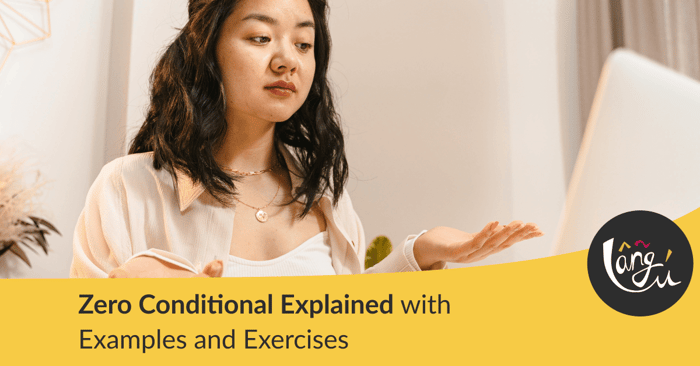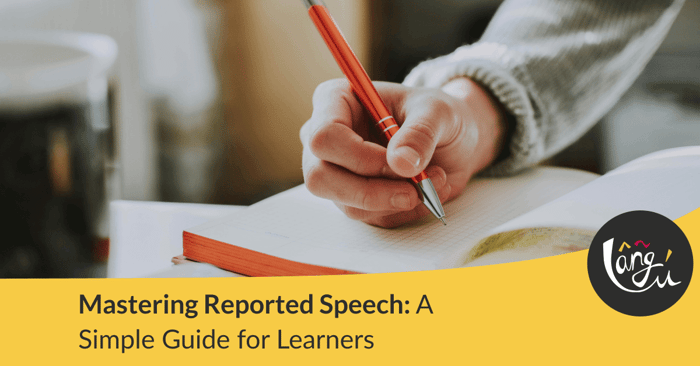Table of Contents
What Is the Zero Conditional?
The zero conditional is a basic English grammar structure used to talk about general truths, facts, and situations that are always true if something else happens. It’s not about future possibilities or imaginary scenarios — it's about real, repeatable results.
We use it when the result of a condition is always the same.
Structure:
If + present simple, present simple
Both parts of the sentence — the if-clause and the main clause — use the present simple tense.
When Do We Use the Zero Conditional?
The 0 conditional is used when:
The condition always leads to the result.
You are stating facts, rules, or natural laws.
The situation is not hypothetical; it reflects how the world works.
This structure is commonly used in:
Scientific facts
Instructions and rules
Common truths
Routines
Examples of Zero Conditional in Use
Here are a few examples to show how this conditional works in everyday English:
If you heat water to 100 degrees Celsius, it boils.
→ This is a scientific fact.If it rains, the ground gets wet.
→ This always happens when it rains.If people eat too much sugar, they gain weight.
→ This is a general truth.If I don’t sleep well, I feel tired.
→ This is a personal rule based on experience.If students arrive late, the teacher marks them absent.
→ A school rule that always applies.
Notice how both parts of the sentence are in the present simple tense — no future, no past, no conditionals like would or will. That's what makes it a 0 conditional.
More Examples in Context
Let’s take a look at how zero conditional appears in real conversations:
At work:
If the printer runs out of paper, it stops working.In the kitchen:
If you leave food out, it goes bad.In sports:
If a player touches the ball with their hand, it’s a foul.In parenting:
If kids don’t brush their teeth, they get cavities.
It helps express cause and effect — what always happens when something else happens.
Common Mistakes to Avoid
Mixing tenses
✘ If you press this button, the machine will start.
✔ If you press this button, the machine starts.
→ The first one is first conditional. Stick to present simple in both clauses for zero conditional.Using “would”
✘ If it rains, the picnic would be cancelled.
✔ If it rains, the picnic is cancelled.Using modal verbs
✘ If you drink coffee, you can stay awake.
✔ If you drink coffee, you stay awake.
→ “Can” shifts it from a certain fact to a possibility.
Exercises
Test your understanding of the zero conditional with these short exercises.
Exercise 1: Complete the Sentences
Fill in the blanks using the correct form of the verb in parentheses.
If you ______ (touch) fire, it ______ (burn) you.
If water ______ (freeze), it ______ (turn) into ice.
If I ______ (eat) peanuts, I ______ (get) sick.
If children ______ (not sleep) enough, they ______ (be) grumpy.
If you ______ (mix) red and blue, you ______ (get) purple.
Exercise 2: Choose the Correct Answer
Pick the sentence that uses the zero conditional correctly.
a) If you will run fast, you win the race.
b) If you run fast, you win the race.
c) If you ran fast, you would win the race.
Exercise 3: Write Your Own
Create three zero conditional sentences about:
A daily routine
A school rule
A fact about nature
Answer Key
Exercise 1:
touch, burns
freezes, turns
eat, get
don’t sleep, are
mix, get
Exercise 2:
b) is the correct answer.
Exercise 3: (Sample answers)
If I wake up early, I go for a run.
If students don’t wear uniforms, they get detention.
If the sun sets, it gets dark.
Final Tips
Use it to express real, unchanging consequences.
Stick to present simple tense throughout.
Practice forming both parts of the sentence correctly.
Think about your routines, scientific facts, or rules — these are perfect situations for using zero conditional.
Ready to Speak English Confidently?
Understanding grammar like the zero conditional is just one part of mastering English. To really improve, you need regular practice and expert guidance.
Book a lesson with a professional English teacher today on Langu and start speaking clearly, confidently, and correctly. Whether you're preparing for exams, interviews, or just everyday conversation — Langu has the right teacher for you.
Stay sharp. Practice often. And remember — if you practice every day, your English gets better.
FAQs
What is the zero conditional used for?
The zero conditional is used to talk about facts, general truths, and situations where one thing always leads to another. It's ideal for describing scientific laws, habits, and rules — anything that's consistently true.
What is the structure of the zero conditional?
The zero conditional follows this simple structure:
If + present simple, present simple.
Both parts of the sentence must use the present simple tense, such as:
If water reaches 100°C, it boils.
Can I use "will" or "would" in the zero conditional?
No, you should not use "will" or "would" in the zero conditional. This structure is only used for real, factual outcomes, so both clauses must stay in the present simple tense.




